Editorial: Vermont judge defends free speech

FILE- This contributed photo shows Rumeysa Ozturk on an apple-picking trip in 2021. (AP Photo)
|
Published: 04-25-2025 8:01 PM
Modified: 04-27-2025 1:25 PM |
U.S. District Judge William K. Sessions III of Vermont has performed a public service as well as his judicial duty by clarifying the nature of the Trump administration’s lawless campaign of abduction, detention and deportation of international students studying at American universities.
“Lawless” is our characterization, not the judge’s. But Sessions’ carefully measured 74-page ruling in the case of Rumeysa Ozturk, a Turkish national who is a doctoral candidate in child study and human development at Tufts University, can be read to support that conclusion. Ozturk was abducted near her apartment in Somerville, Mass., on March 25 by masked federal agents in plainclothes who seized her cell phone and handcuffed her before spiriting her off via Vermont to a detention facility in Louisiana. There she is reportedly being held in overcrowded and unsanitary conditions without access to her asthma medication or occasion for religious observances. Earlier this month, Sessions ordered U.S. Immigration and Customs Enforcement (ICE) to return Ozturk to Vermont by May 1 while her challenge to her detention is pending in his court. The government has filed notice that it intends to appeal his decision.
There are several strands to untangle here. One is the arcane but important matter of jurisdiction. We hesitate to rush in where laymen should fear to tread, but it seems fair to say that Sessions rejected the government’s blanket assertion that the federal judiciary has no oversight role in immigration cases. We believe that any other conclusion would constitute a blank check for government abuse of human rights.
We use the word abuse intentionally because that is exactly what transpired in this case. A fair reading of the record suggests that ICE ignored a Massachusetts federal court order issued later on March 25 that prohibited it from moving Ozturk out of Massachusetts without providing advance notice. In the meantime, ICE had secretly hustled Ozturk off to Vermont while keeping everyone, including her lawyer, in the dark as to her whereabouts. (For this reason, the Massachusetts federal court transferred the case to Vermont.)
“Ignoring an order, particularly one issued on an emergency basis in response to events that are currently unfolding, is not the approach the Court expects from the government,” Sessions wrote (although it is one that we have come to expect from the Trump administration). He also noted that disobedience of court orders makes a mockery of “the judicial power of the United States,” adding that “the court declines to abet a slide into mockery in this case.”
These are but preliminaries to the discussion of Ozturk’s substantive claims that the government has violated her First Amendment and due process rights under the Constitution, claims that Sessions concluded, based on the evidence provided so far, are viable and serious and “warrant urgent review on the merits.” Returning her to Vermont will facilitate that review, he ruled.
Ozturk is one among many noncitizen university students who have had their visas revoked and deportation proceedings initiated against them because they have expressed pro-Palestinian views or participated in pro-Palestinian protests. In Ozturk’s case, her purported offense was co-authoring an op-ed in the university’s student newspaper urging the administration to give effect to resolutions adopted by the undergraduate student senate, including divesting from companies with ties to Israel and acknowledging what it characterized as the Palestinian genocide in Gaza. This piece violated no university policy and was among many different views aired in the same forum.
Although this is clearly political speech protected by the First Amendment (which, Sessions notes, does in fact apply to noncitizens), the government is still moving to deport her on the grounds that she has been involved in associations “that may undermine U.S. foreign policy by creating a hostile environment for Jewish students and indicating support for a designated terrorist organization.” Secretary of State Marco Rubio has hinted darkly that more evidence exists to support Ozturk’s detention. The government has provided none; Sessions invited it to do so.
Article continues after...
Yesterday's Most Read Articles
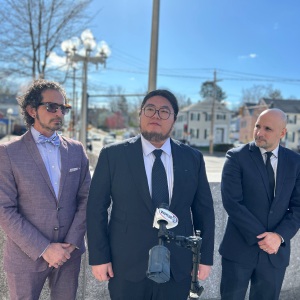 ‘A bit Kafkaesque’: Federal judge spars with government lawyer over status of Dartmouth international student
‘A bit Kafkaesque’: Federal judge spars with government lawyer over status of Dartmouth international student
 Woodstock demotes police chief to patrol officer
Woodstock demotes police chief to patrol officer
 Proposed dog ordinance sparks controversy in Norwich
Proposed dog ordinance sparks controversy in Norwich
 Hundreds of alumni sign letter urging Beilock, Dartmouth to make a stand for academic freedom
Hundreds of alumni sign letter urging Beilock, Dartmouth to make a stand for academic freedom
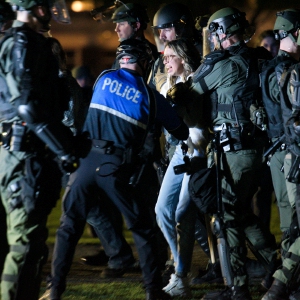 Kenyon: A year later, effects of mass arrests at Dartmouth linger
Kenyon: A year later, effects of mass arrests at Dartmouth linger
But note that the Washington Post, citing government sources, has reported that an internal State Department memo written prior to Ozturk’s visa being revoked said that investigations by ICE and the Department of Homeland Security had found no evidence that she had engaged in antisemitic activity or made public statements supporting a terrorist organization, presumably Hamas.
Being in the opinion business ourselves, this all has particular resonance. If the First Amendment does not apply to speech that merely disagrees with U.S. foreign policy, then it is rendered meaningless in all contexts. By extension, it would not protect dissenting views presented by any of us scribblers in the U.S., foreign or domestic. Once a government asserts authority to determine who can say what, when, where and in what context, there is an end to freedom of speech and thought. Nor do we believe that repression of dissent will be confined to foreign nationals if this is allowed to stand. Thus do we fervently hope that when all the facts are in, Ozturk prevails in vindicating her constitutional rights.






 Editorial: Free speech detentions reach into Upper Valley
Editorial: Free speech detentions reach into Upper Valley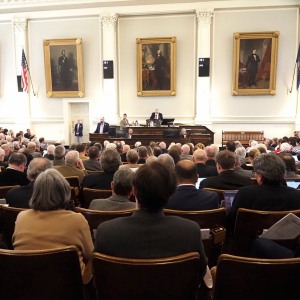 Editorial: New Hampshire budget shortfall is a crisis of Republican design
Editorial: New Hampshire budget shortfall is a crisis of Republican design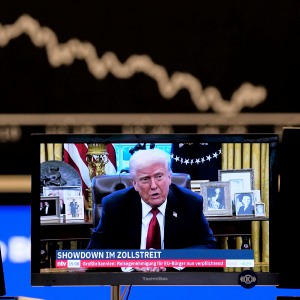 Editorial: Time is running out for American democracy
Editorial: Time is running out for American democracy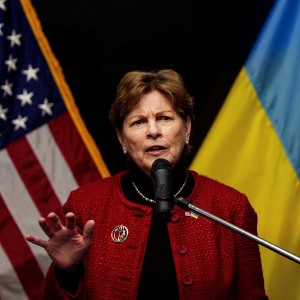 Editorial: Jeanne Shaheen blazed a trail in politics
Editorial: Jeanne Shaheen blazed a trail in politics
